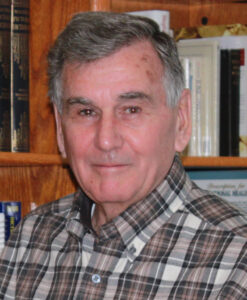
Food for Thought
To pass an exam, students are told they must learn “facts”. Teaching is based on feeding “facts” to students and then having them regurgitate “facts” back so the teacher may assess their students’ ability to learn. However, nothing teachers present to students are facts. What is being taught are opinions and theories.
Author and educator, Neil Postman, suggests schools should tell the truth, that all “facts” are arguments. Postman suggests schools should have students look for evidence to prove or dispute “facts”. Students could be graded on their research and students would learn very valuable life lessons, such as, nothing can be referred to as fact, and everything must be questioned. Students would go out into the world with a better ability to discern when people are telling the truth and when they are not. Students will get into the habits of questioning everything and researching the pros and cons of any argument. They would be less prone to be being taken advantage of by scammers.
For hundreds of years schools have taught that in 1492 Columbus discovered America, despite considerable contradictory evidence. Historians suggest 1492 was not the first time Columbus sailed to the Americas. Evidence indicates he sailed to Newfoundland in 1482 as a cabin boy on a Portuguese ship. There is evidence which indicates Columbus, on his 1492 voyage, had a Portuguese map which clearly showed where South America is situated. Apparently, this map was copied from a Chinese map. Historians tell us Columbus and explorers who followed him found people already living in the Americas, some of whom were speaking a Chinese dialect. Historians also tell us, Chinese sailing ships circumnavigated North and South America long before Europeans knew of these continents. Wrecks of Chinese ships, which date back over 500 years, have been found in California. Why are schools not teaching contradictory evidence about Columbus?
There are many stories which depict Mother Teresa as a wonderful and charitable saint. Christopher Hitchens disagreed with this image. He painted Mother Teresa as being sadistic and demonic, and he denounced her in his book, The Missionary Position. Mother Teresa’s supporters simply ignored Christopher Hitchens. They did not condemn his book nor bring libel charges against him. Why? What is the truth about Mother Teresa?
Because the Infallible Church accused Joan of Arc of being a heretic, they condemned her to be burned alive while tied to a wooden stake. For hundreds of years many French citizens protested that her execution was unjust. To them, Joan of Arc was a hero who should have been honoured. To silence the public outcry, the Infallible Church did a flip-flop, they canonised Joan of Arc as a saint. Which of the popes was infallible, the one who condemned Joan of Arc to death or the one who made her a saint? Or maybe neither one was?
In 1960, when John Diefenbaker, Prime Minister of Canada, presented Canadians their new bill of rights, he stated, "I am Canadian, a free Canadian, free to speak without fear, free to worship God in my own way”. During the 1970 October Crisis, Prime Minister Pierre Trudeau demonstrated that Canadians’ rights are not guaranteed, and our bill of rights is not worth the paper it is written on.
In its very first sentence, the Canadian Bill of Rights acknowledges the supremacy of God. The original bill sent to The House of Commons made no mention of God. Why was God added, despite the common knowledge that more than half the world’s population believe there is no God, or believe, in all probability, there is no God? Nobody has ever been able to prove the existence of God, or that God does not exist. We all have our own opinions.
Is Canada’s declaration of the supremacy of God an insult to atheists, agnostics, and anyone whose religion does not include God? Is Canada discriminating against non-believers? Teachers should be asking their students to do some research and find out why God was put into the Canadian Bill of Rights, and why only as an after-thought, not in the original bill sent to The House of Commons.
It is time for schools to begin encouraging their students how to think and to question what they are being taught. That is food for thought.
Wayne Douglas Weedon is a Manitoba author who writes a combination of fictional and factual stories, essays, and novels.

